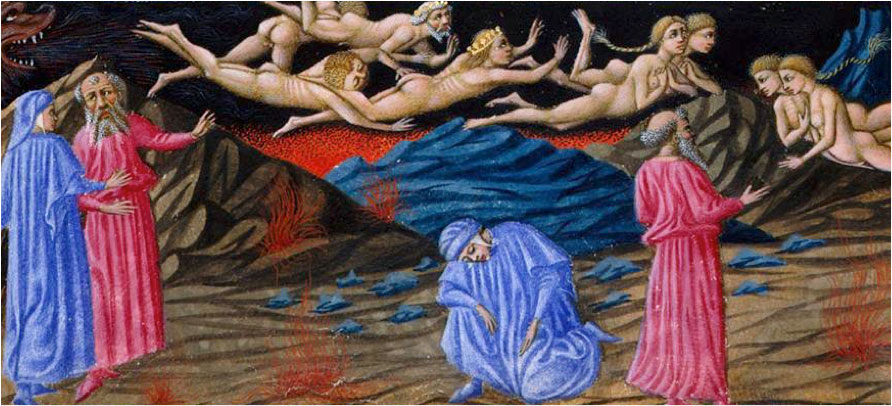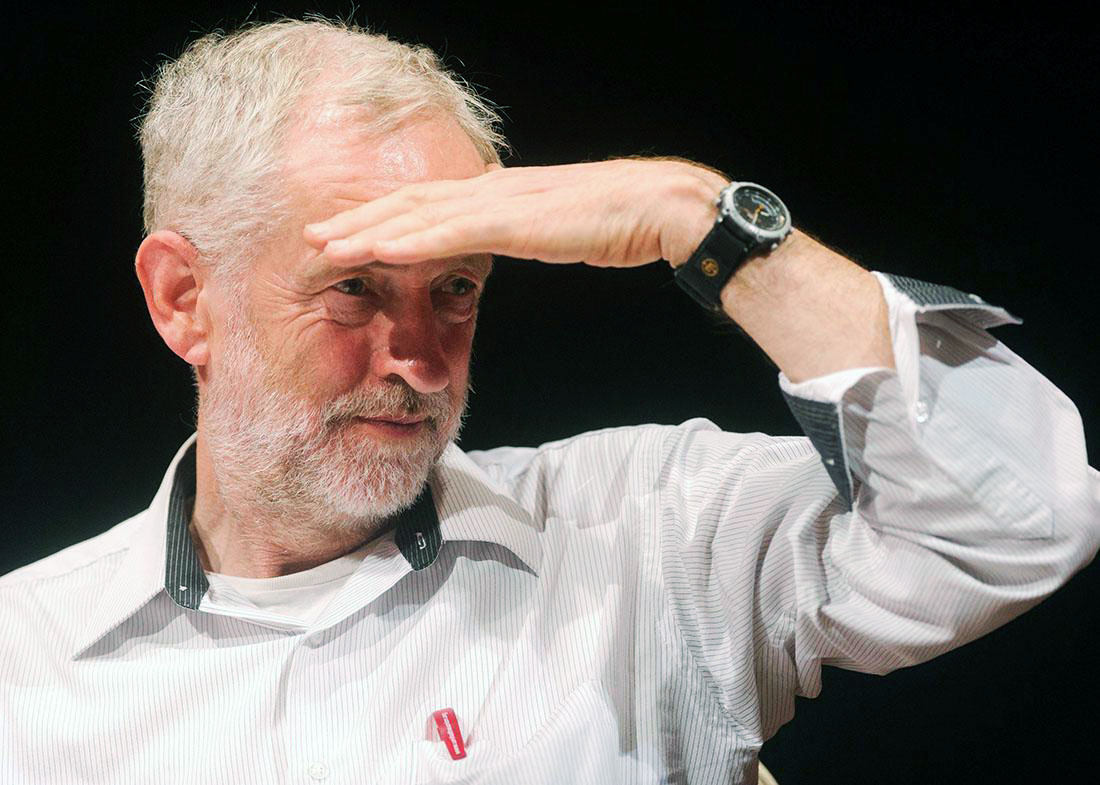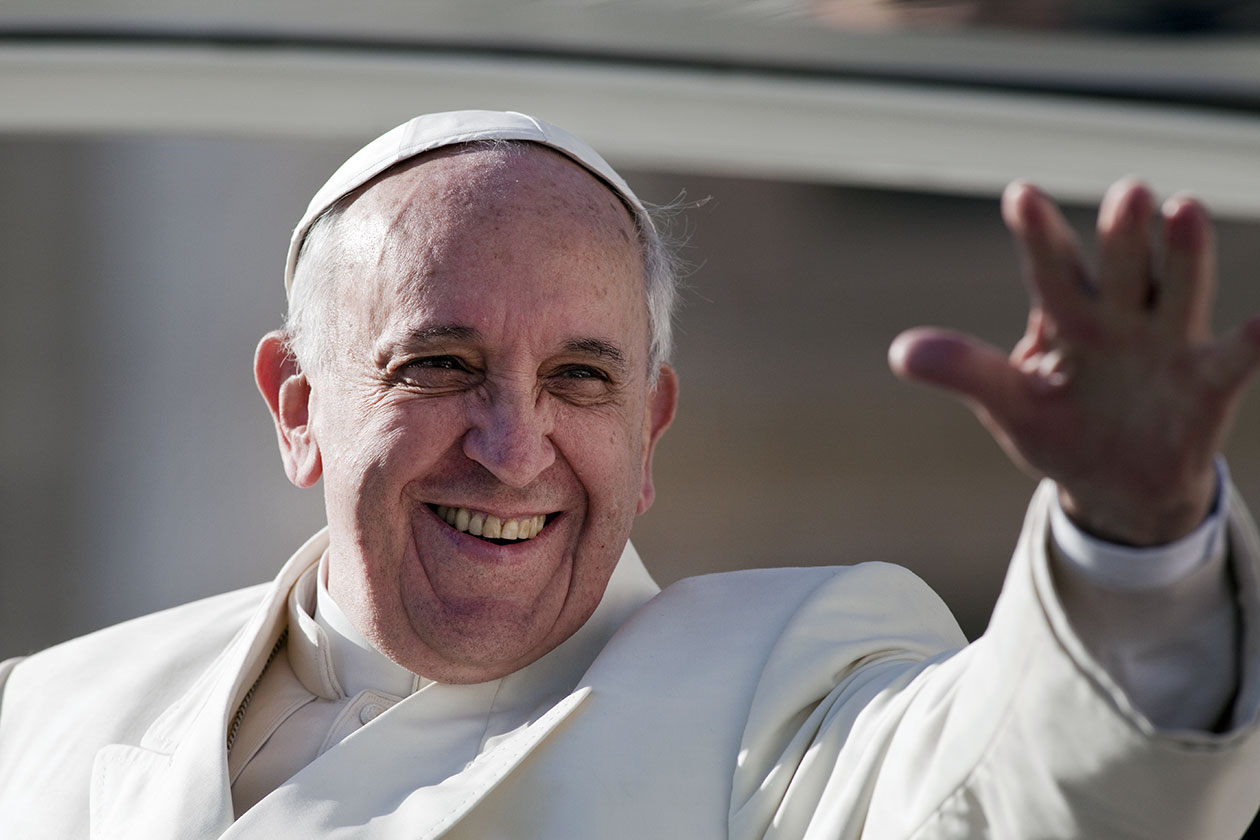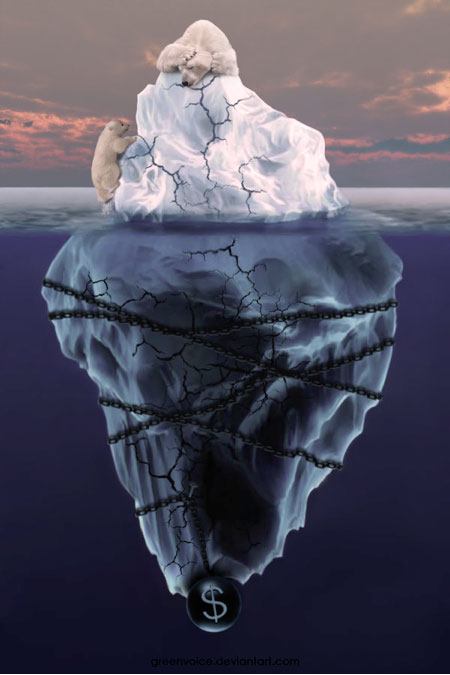
Dante in London
September 15, 2015
Jeremy Corbyn’s economic turn
September 28, 2015Is greed a virtue or a vice? Has our society turned a vice into a virtue? One very powerful and influential voice has entered the debate via the wide-spread concern with the environment. Pope Francis, in his latest encyclical Laudato Si, is opening up new questions and discussions across the globe. Stephen McCarthy, an economist and self-confessed environmentalist, enters the dialogue with Dantemag.
by Steve Mc Carthy
Since his election in March 2103, Pope Francis has acquired a rock-star popularity. His messages and particularly his gestures of compassion, of solidarity with the poor and marginalized, have caught the imagination of millions, and not just among the 1.2 billion Roman Catholics across the world. Through his words, honestly spoken, and his actions – such as washing the feet of a young Muslim woman in prison – he personally demonstrates, to a world that has largely forgotten, that this is the essence of Christianity. He also acknowledges his own failings and rejects the monarchical style and trappings of the Vatican, continuing to live with other clergy in a simple Roman guest house rather than in the sumptuous official papal apartments in the Vatican.
So when his much trailed encyclical, entitled Laudato Si, was published last June, translated in seven languages, there was naturally a great deal of excitement. Laudato Si [Praised be] are words from a well known canticle by St Francis of Assisi, the Italian saint after whom Alessandro Bergoglio took his name when he became pope. Pope Francis’ encyclical has come down firmly on the side of the scientific consensus. So it was met with joy among those who are concerned about climate change and environmental destruction, but grumpiness and criticism on the part of the climate deniers. The latter tend to be concentrated in the United States, but include one prominent Cardinal in Australia, who is an adviser to the Pope, though presumably not on environmental matters. These people, Francis says: ‘doggedly uphold the myth of progress and tell us that ecological problems will solve themslves simply with the application of new technology and without any need for ethical considerations or deep change’ (60).
Pope Francis addresses not just Catholics but ‘all people of goodwill’ and hopes ‘to enter a dialogue with all people about our common home’. He explains that he is prepared to draw on the wisdom and knowledge of ‘all people’, that is including those outside the Catholic Church, to formulate and express his ideas. Such openness to the wisdom of the world has not often been seen in recent papal teaching. But, what I find really encouraging, partly because it follows the development of my own thoughts, is that Francis’ encyclical, ostensibly about the environment, is really about much more than that. It questions the whole ethos and values of modern society.
There is a connection between ecological damage and social injustice and inequality across the world. It is those of us who are wealthy who have caused the damage and who continue to exploit the resources of the Earth, but it is the poor who will suffer, and are already suffering, the consequences. Of course, many people and experts already pay lip service to this without really taking it to heart. By contrast, Francis hammers this message home, over and over again, throughout the entire document. So the focus of my commentary here will be especially to draw out this aspect of the encyclical, and my summary below will be somewhat selective. But, for those who would like to read the entire text, it is available as a printed booklet, or it can easily be downloaded from the Vatican website in various languages. For instance, the English version is available here: http://w2.vatican.va/content/vatican/en.html
A selective critical summary
Francis’ first chapter, What is Happening to our Common Home, categorically rejects the idea that climate change is not happening or that it is not caused by human activity. Importantly he also points out that climate change is just one aspect of environmental degradation, mentioning in particular the problem of water availability and the loss of biodiversity. All this is already having an impact on the quality of people’s lives for which he blames ‘current models of development and the throwaway culture’.
In the second chapter Francis turns to The Gospel of Creation, and here he seems to be tilling fertile theological ground. He stresses that in the Biblical narrative God found that all his creation – not just humanity – was ‘very good’ (Gen 1:31). So, when humanity is given ‘dominion’ over the rest of creation, this does not mean a free hand to do whatever we want with it, but is rather a call to responsibility, to care for the created world in a way consistent with God’s purpose.
This implies a relationship of mutual responsibility between human beings and nature. Each community can take from the bounty of the earth whatever it needs for its subsistence, but it also has the duty to protect the earth and ensure its fruitfulness for coming generations (67).
It also implies that ‘we are called to recognise that other living beings have a value of their own in God’s eyes’ (69). Francis goes on to quote approvingly from the German bishops’ teaching that: ‘we can speak of the priority of being over that of being useful’ (69). He continues to develop this theme with a number of lyrical Scriptural examples and references; stressing that that whole of creation, a more mysterious idea than just ‘nature’, is an expression of God’s bounteous love. One feels Francis is really at home with this section of the document. But, again, for me one of the most significant sentences is this:
If we acknowledge the value and fragility of nature and at the same time our God-given abilities, we can finally leave behind the modern myth of unlimited material progress (78).
If we take this seriously, then we, in the prosperous world, will have to live without economic growth. There are few economists, still less politicians, who have even begun to consider the implications of this. Over the last couple of generations, though not longer, economic growth has become the principal objective of our societies. When you think about it, this is really odd; I mean that the main political objective of our society, which already enjoys material abundance, should be so utterly banal as to just have more stuff and more fun. Later in the text, Francis sketches out his vision of how this renewed way of life might be and in particular the nature of ‘work’. I have some problems with the details of that, which I will come back to later.
In the third chapter on the Human Roots of the Ecological Crisis, he starts by stressing the enormous power that humankind has gained over nature over the last two centuries or so of scientific and technological understanding – a power ‘that has not been accompanied by a development in human responsibility’ (105). But the deeper problem is the set of values that pervade the modern world, which Francis calls the ‘technocratic paradigm’. He comments that this paradigm ‘tends to dominate economic and political life. The economy accepts every advance in technology with a view to profit, without concern for its potentially negative impact on human beings’ (109). The technocratic paradigm tends to see humans in purely instrumental terms, so human relations have also been damaged. He says:
If the present ecological crisis is one small sign of the ethical, cultural and spiritual crisis of modernity, we cannot presume to heal our relationship with nature and the environment without healing all fundamental human relationships (119).
The rest of the document turns more towards the future. In his fourth chapter, Integral Ecology, he argues that all ecological issues should be considered integrally including: culture, economics, human relations and ‘social ecology’. But considered according to what criteria? So, here, Francis draws attention to the principles of Catholic social teaching, notably the principle of the ‘common good’, the importance of ‘family’, the ‘preferential option for the poorest of our brothers and sisters’ (158) and justice between generations – ‘the kind of world we are leaving to future generations’ (159). In the end everything comes down to: ‘what is the purpose of our life in this world? Why are we here? What is the goal of our work and all our efforts?’ (160). He concludes the chapter:
Our difficulty in taking up this challenge seriously has much to do with an ethical and cultural decline which has accompanied the deterioration of the environment. Men and women of our postmodern world run the risk of rampant individualism, and many problems of society are connected with today’s self-centred culture of instant gratification (162).
He makes a similar point in the next chapter: Lines of Approach and Action. In arguing for the need for a global consensus and governance over many of the issues we face, he is not saying much more than any concerned, left-leaning, secular environmentalist might advocate. But then Francis goes beyond the conventional wisdom and writes:
Put simply, it is a matter of redefining our notion of progress. A technological and economic development which does not leave in its wake a better world and an integrally higher quality of life cannot be considered progress (194).
And in chapter six, on Ecological Education and Spirituality he writes:
Since the market tends to promote extreme consumerism in an effort to sell its products, people can easily get caught up in a whirlwind of needless buying and spending. Compulsive consumerism is one example of how the techno-economic paradigm affects individuals […] This paradigm leads people to believe that they are free as long as they have the supposed freedom to consume. But those really free are the minority who wield economic and financial power. Amid this confusion, postmodern humanity has not yet achieved a new self-awareness capable of offering guidance and direction, and this lack of identity is a source of anxiety. We have too many means and only a few insubstantial ends (203). […]
Many people know that our current progress and the mere amassing of things and pleasures are not enough to give meaning and joy to the human heart, yet they feel unable to give up what the market sets before them. […] Young people […] Have grown up in a milieu of extreme consumerism and affluence which makes it difficult to develop other habits. We are faced with an educational challenge’ (209).
Finally, towards the end of Laudato Si, Francis reverts to more specifically Christian themes, emphasizing once again God’s immense love for creation and the responsibility placed on humankind to care for it.
The future of ‘work’
It is when Francis outlines possible solutions for the state of affairs into which God’s earthly creation has fallen (broadly paragraphs 124 to 129), that I begin to part company with him. Specifically he makes this comment about the dignity of human work:
We were created with a vocation to work. The goal should not be that technological progress increasingly replaces human work, for this would be detrimental to humanity. Work is a necessity, part of the meaning of life on this earth, a path to growth, human development and personal fulfillment (128).
Certainly we have a vocation to work, but we must also recognize that technology has, over the course of history, replaced some very degrading and back-breaking work. And there is no reason to expect that this trend will cease. It may be true, as Francis advocates, that not everything that is technically possible should actually be attempted. Nevertheless, it is highly probable that humankind will continue to devise ways in which human work can be automated or in some way taken over by machines.
Humanity is not going to become less inquisitive. Now this trend has become one of the major political driving forces for economic growth, since continued growth is generally perceived as the only way to keep people in ‘work’ – in effect, to maintain full employment – even if the net result is to encourage excessive consumption and create ever more socially useless jobs. In this context, I think, for example, of the many jobs in the financial sector, trading artificial securities which provide no real benefit to society as a whole, and of much of the advertising and marketing industry which is engaged in selling things that people neither need nor really want.
Now further economic growth is precisely what Francis believes the prosperous countries should now abandon, arguing correctly that only in this way will we cease to overconsume the earth’s resources and to lay waste to the planet. So, his solution for the provision of work for everybody is different. He argues for much more small-scale economic activity – a sort of labour intensive, ‘small is beautiful’ approach, with small-scale agricultural production, co-operatives and so on. One is reminded here of the distributist movement which emerged a century ago, particularly in England, following Pope Leo XIII’s Encyclical Rerum Novarum, which argued for production largely through small scale workshops rather than large factories. Certainly there is room for such ideas and models, and it may well be that, particularly in the agricultural sector, small really is beautiful, in contrast to the huge tracts of land now turned over to mono-crops and entirely dependent on artificial fertilisers and chemicals. But many of the genuinely good things, and also the scientific knowledge, that we enjoy in the world today, as well as the avalanche of unnecessary stuff, is the result of huge numbers of people working cooperatively in various forms of larger organisation, not necessarily businesses. These things could not possibly have been, or be, achieved if everything had to be done on a small scale. For me, one of the most amazing illustrations of this came on a visit to CERN near Geneva where three thousand scientists across the world had co-operated voluntarily to produce perhaps the most complex machine ever built, which then served to discover one of the ultimate building blocks of the universe: the Higgs Boson. In short, human activity is becoming more inter-related, human society more complex, so that it cannot simply be re-organised in a way that suited a pre-industrial age. We should welcome this as evidence of humanity’s continuing evolution – towards what that great thinker Teilhard de Chardin called the noosphere.
The underlying confusion here is that Francis, along with many others, is conflating the concept of ‘work’ with ‘paid work’. For most of human history, and perhaps even today, those who have, or had, paid work are a minority. Yet people still work: mothers look after children; people care for sick or elderly relatives; others study and learn; artists and musicians create beauty for others to share and enjoy; and many engage in the enormous range of what has come to be known as voluntary work, much of which has some charitable purpose. This is all work and it does confer that dignity and meaning to life that Francis speaks of. Indeed, our present situation is worse than this; it is so often assumed today that the main, even the only, motivation to work is to get paid. So, for example, doctors and nurses should receive incentive payments to make them care more for their patients.
The alternative is neither to seek ever more paid work and employment by means of economic growth, nor to attempt to re-organise paid work according to an outdated model of the past. Instead, what rich societies have to do is find new ways of sharing out the huge material abundance that we already enjoy, without necessarily requiring people to engage in work that is formally paid. This would amount to a paradigm shift in the way we conceive the economic and social institutions of our era. One possible approach advocated by the movement for a basic income, also known as or citizen income, is that everyone in a particular society, possibly across the EU as a whole, should automatically receive a small income from the state as a matter of right. See for example: http://basicincome2013.eu/en/ . Of course, most adults would continue to engage in paid work and thus earn additional income which, as now, would be subject to taxation, though they might no longer be willing to work for derisory wages. The concept is not quite as radical as it seems. In most European countries we take for granted the right to receive free, or almost free, health care, education and so on. Why should people not also have an automatic right to necessities such as food and clothing?
Conclusion
If one stands back from Francis’ detailed arguments and examples, it becomes clear that the underlying problem of our society is that the vice of greed has come to be seen as a virtue. Greed, has been condemned for centuries by religions, as well as other great philosophical and ethical traditions. Greed has become a synonym of avarice, but in Christianity it may be understood as the disordered desire for material things, thus including the vices of avarice, gluttony and lust. In other words, the feeling that one never has enough money, food or sex, and then acting upon it in a way that serves to procure more and more of these things, is what gives rise to injustice and abuse of power, people and resources.
Yet, any reading of most newspapers today quickly demonstrates that people are now assumed always to desire more, and that this desire should be encouraged as it is the basis on which our economy functions. Thus businesses are entitled to make as much profit as they can, subject to a few irksome bureaucratic and legal constraints, even if in doing so their employees are treated as mere wage slaves. It is widely assumed that ethical considerations play no role in business behaviour, and that this is how free-market capitalism works. Adam Smith’s idea of the ‘hidden hand’ is often blamed for this state of affairs. In reality Smith’s philosophy was much more subtle than this, recognizing in particular that workers were still human beings and not just instruments of production. So, the vice of greed has become a virtue, and the whole world suffers for it, most especially the half of the human population that effectively owns nothing beyond the clothes they stand up in, and food and resources for the next few days.
The final outcome is: first, a great deal of human degradation, injustice, and unnecessary impoverishment as people become mere instruments in a chain of production to provide more to those who already have enough, and second, the environmental destruction which increasingly surrounds us. Laudato Si is a prophetic cry against this. Francis urges us all, most particularly in the prosperous West, to rethink how we live our lives: to ask ourselves why we have allowed the mere possession of material things and experiences to take such prominence in our world as to become the driving force of the way we live. Instead Francis encourages us to ask again: what is the purpose of life; what are we here for? Sadly the avalanche of stuff and fun to which we are subject has numbed our sensitivity to the important questions about life and diminished our awareness of what lies beyond the immediate material world that we can touch and feel But. Pope Francis and like-minded people remind us that there is still room for dialogue and hope for a better way forward, a way where we may act so as to avoid greed rather than exalt it.






